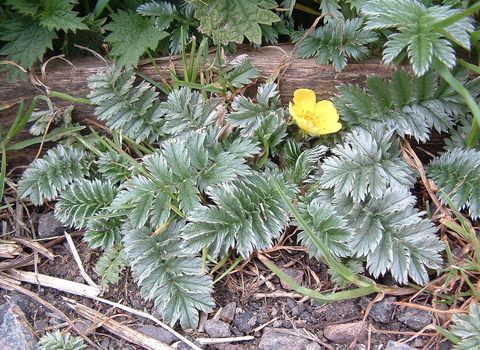
©Dave Riseborough
Silverweed
As its name suggests, Silverweed has silvery leaves with toothed edges. It can be found in grassy places, along roadsides and on waste ground - look for yellow, saucer-shaped flowers and red runners.
Scientific name
Potentilla anserinaWhen to see
January to DecemberSpecies information
Statistics
Height: up to 15cmCommon.
